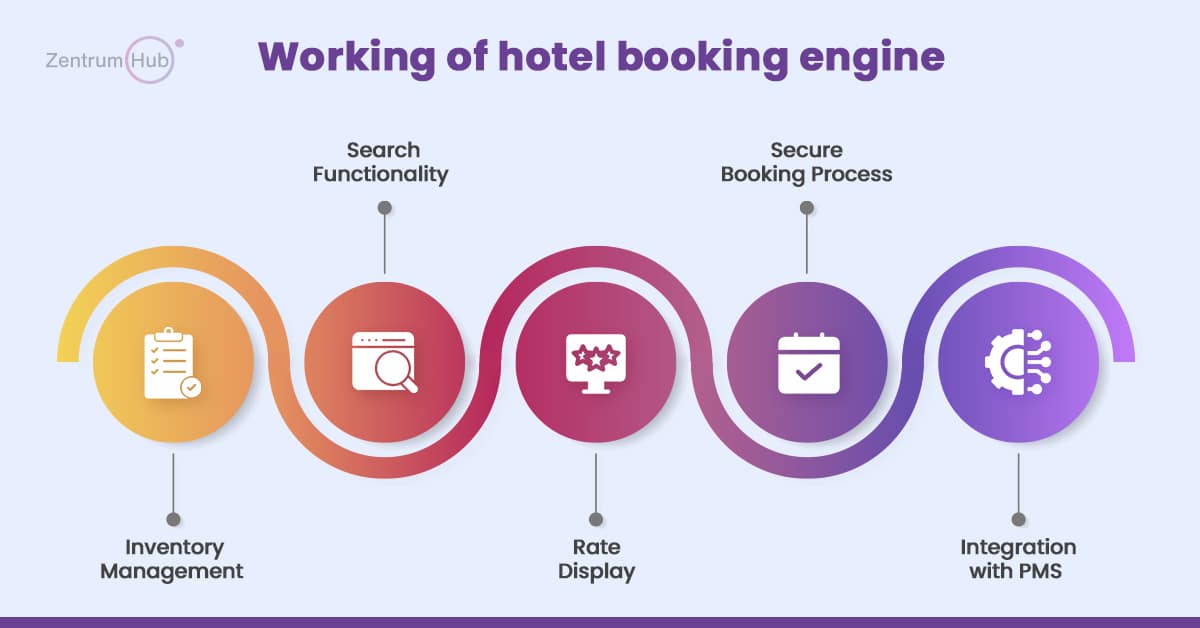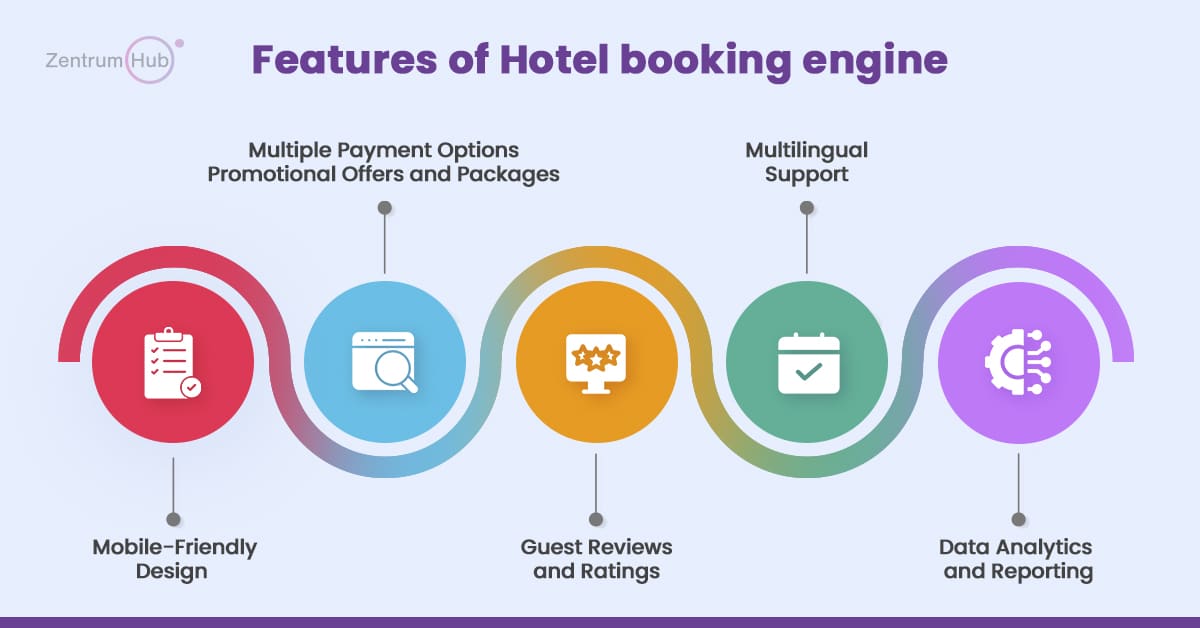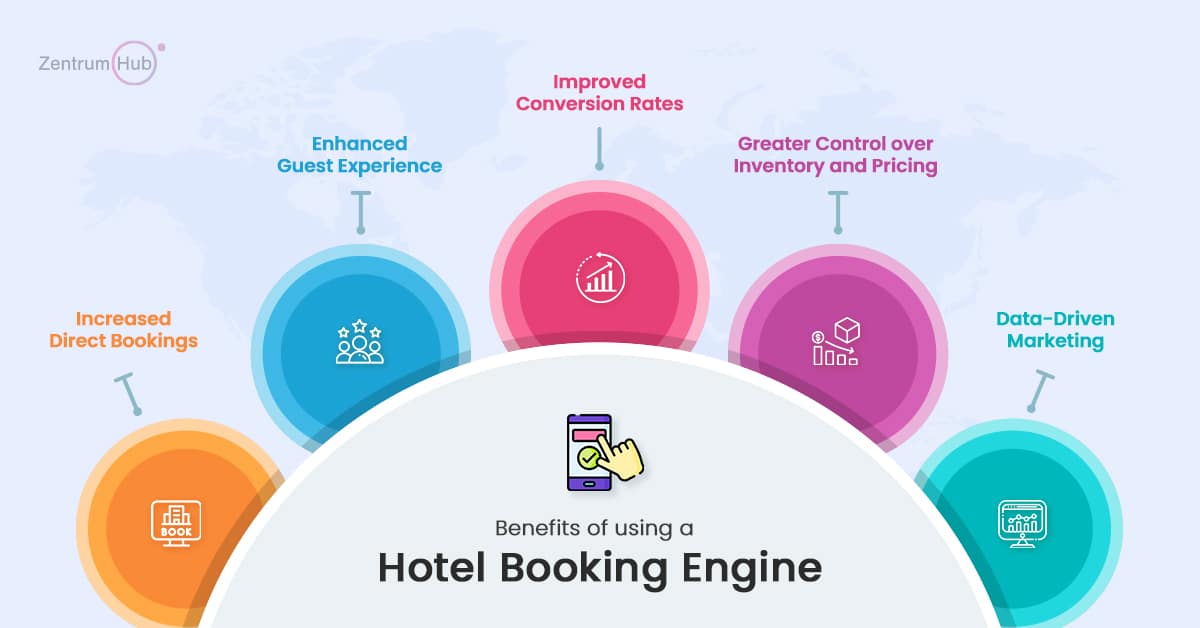Over the years, travel has gradually started becoming an increasingly accessible commodity, which has made people worldwide frequently plan trips to explore new countries, cultures, and cuisines. A survey from Skift states that in 2023, online booking of hotel reservations worldwide will surpass the 70% mark. Gradually, travelers prefer the convenience and flexibility of various online booking platforms.
The world has come much closer, and travel seems easier. However, this adaptation of the digital landscape in travel has presented hotels with a unique challenge to capture a larger share of online bookings and offer a seamless experience for guests. The solution comes in the form of a hotel booking engine, which, as its basic workings take direct reservations through its website and other online channels, maximizes profits.
This blog aims to give you an overview of a hotel booking engine and why it is important to have one for your business. Let’s jump right in!

A hotel booking engine is a software application that is integrated into a hotel’s website, allowing guests to search for available rooms, compare rates and make secure online reservations. In simpler terms, your hotel’s online storefront gives your potential customers a user-friendly platform to complete their booking journey from start to end.
The hotel booking engine allows customers to search for hotels, rooms, prices, and locality, compare images/videos, and book rooms via the website or mobile app. A hotel booking engine is helpful for business owners to list hotel room availability, feed hotel information, accept bookings, collect payments, track bookings, & collect reviews. The goal of every booking system is to list inventory and enable online bookings worldwide.
The primary purpose of the hotel internet booking engine (IBE) is to detect and process online reservations coming from a hotel/accommodation provider. Other vital roles of the hotel booking engine are:
Integration with PMS/Suppliers: Once the successful booking is carried out, the booking engine automatically updates your PMS or suppliers with new reservation details, ensuring every department in the hotel is aware of the bookings and can arrange the preparation likewise.
Read more Ideal Features that a Hotel Booking Engine Must Have

Every hotel booking engine software offers some features that enhance the guest experience, simplifying hotel operations. Let’s look at some common features.
Mobile-Friendly Design: In recent years, every technology has shifted to a mobile-first approach, which applies to hotel booking engines. A well-designed and developed hotel booking engine comes with seamless mobile optimization across all devices, including smartphones, tablets, and more, catering to the growing trend of mobile booking.
Multiple Payment Options: Providing your service to a global audience is no easy feat; thus, keeping a global aspect in mind, the hotel booking engine should support various payment methods like credit cards, debit cards, and secure online wallets. Additionally, offering local payment options can attract customers from specific regions.
Promotional Offers and Packages: A competitive hotel booking engine always tends to showcase special offers, packages, and last-minute deals to incentivize bookings and boost revenue.
Guest Reviews and Ratings: The world should know about your incredible services, which is why integrating guest reviews and ratings adds credibility that fosters trust with potential guests, significantly influencing booking decisions.
Multilingual Support: Like payment methods, reaching a global audience requires the integration of multiple languages, too.
Data Analytics and Reporting: A crucial aspect of the booking engine is data analytics and reporting, as it helps to have clear and insightful data. This data helps to understand the reports on various booking trends, guest demographics, and other factors that impact marketing and revenue management strategies.

Now that we have understood the functionality and features of an online hotel booking engine, let’s look at the benefits too.
Increased Direct Bookings: As the number of travelers increases daily, a booking engine that allows guests to book directly through your website gives them more freedom. On the other hand, you can bypass commission fees charged by third-party white-label providers, which will help significantly boost your profit margin.
Enhanced Guest Experience: A user-friendly booking engine automatically streamlines the reservation process, providing guests with a convenient and hassle-free experience and increasing guest satisfaction and loyalty.
Improved Conversion Rates: Having a booking engine that can execute targeted promotions can significantly boost conversion rates. This optimization helps maximize your online booking capture rate, ensuring you capture a greater share of potential customers.
Greater Control over Inventory and Pricing allows you to have complete control over your room inventory and pricing strategy. It allows dynamic pricing adjustments based on demand, seasonality, and other factors, optimizing revenue and occupancy.
Data-Driven Marketing: Collected data from the user’s feed information through the booking engine grants a valuable insight into their behavior and preferences. This data can be used to personalize marketing campaigns, target specific guest segments, and optimize your overall marketing strategy.
These benefits can be further explained into two categories:
Benefits For End Users / Customers:
Benefits For OTAs:
Build In-house: This option is costly and time-consuming but can be customized per your needs. If you build it in-house, you will have to maintain the servers, take care of updates, match technology with supplier and third-party vendor systems, and repeat the process for every supplier and client.
Choose SaaS Providers: Renowned booking engine providers like ZentrumHub can help you go live on day 1 through a monthly subscription fee for the platform. You can customize the look and feel of your UI and add your domain. This option is feasible on all fronts – cost-wise, timewise, and effort-wise. You don’t have to look after anything.
Outsource Development: Other service providers can build from scratch by outsourcing the teams, and clients can get the source code. The outsourced vendor manages everything. Outsourcing talent costs less than building and maintaining in-house but is still more expensive than getting help from an expert booking engine provider. And, even in outsourcing, you may take at least a year to go live.
You can choose whichever way suits your budget, time, and business needs.
Think about it: you need a smooth online booking experience for guests, right? A top-notch booking engine makes this happen, attracting guests and giving you valuable data to level up your hotel business.
In today’s world, convenience is king. A powerful booking engine unlocks new opportunities by making it easy for guests to book and walk through your doors with a smile.
